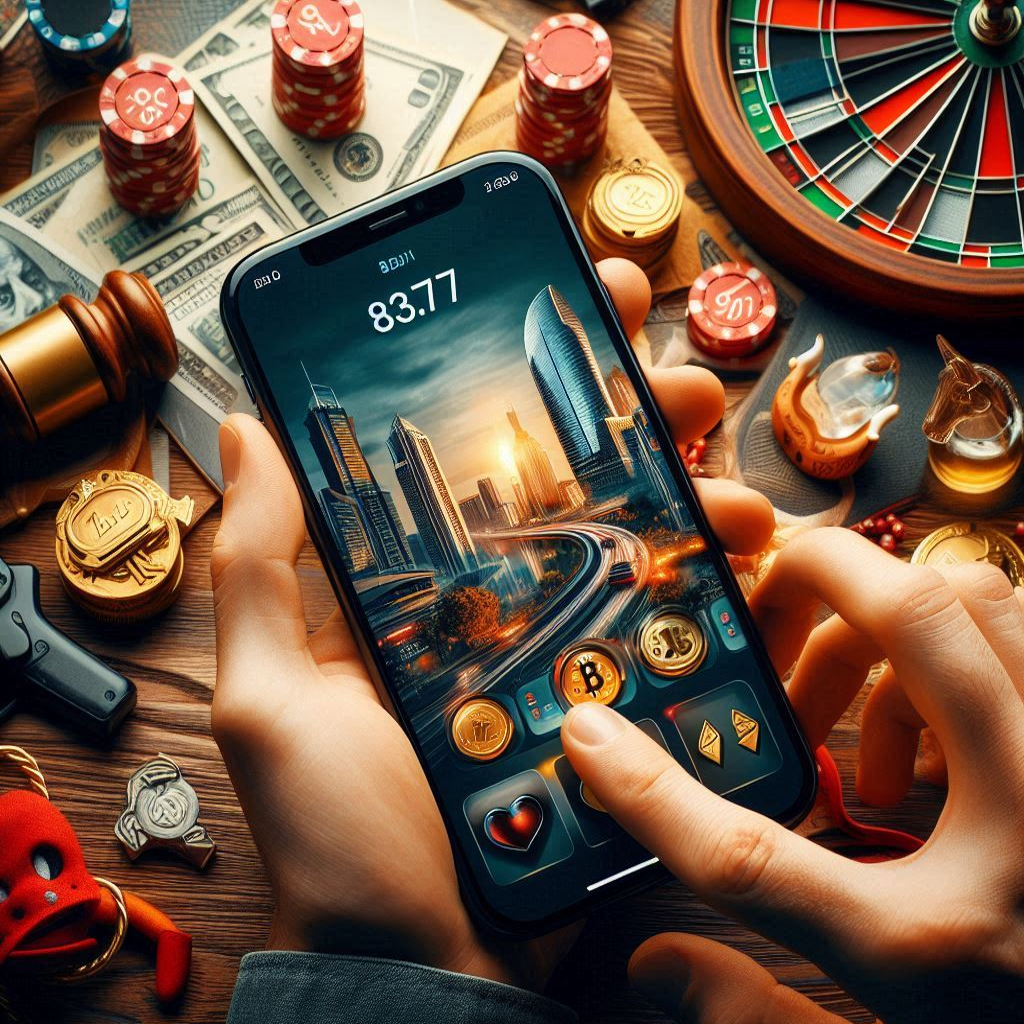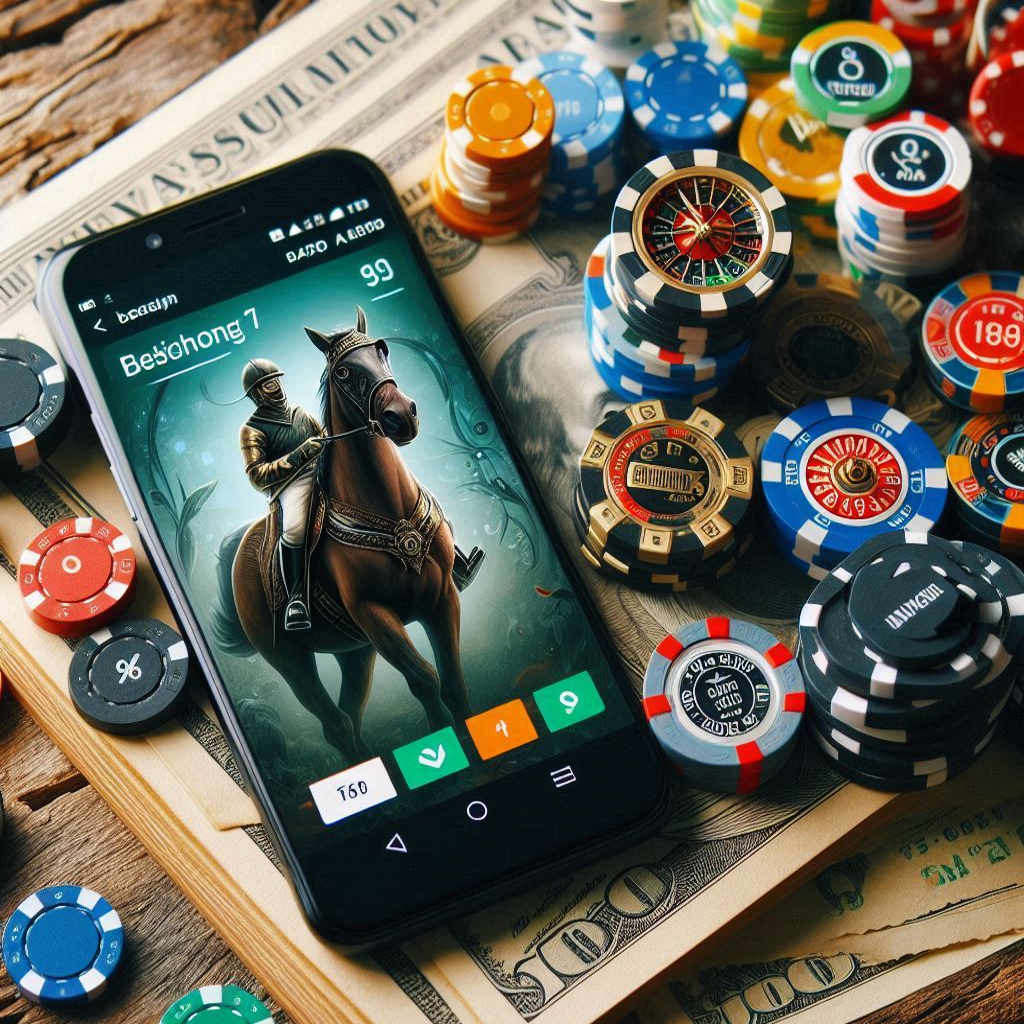Gambling is when people bet money or valuables on an event with an uncertain outcome, hoping to win more than they put in. This can include games like poker, sports betting, or even playing the lottery. But why do people decide to gamble, and how does their thinking affect that choice? Understanding this can help us see why some people are more careful with money while others take big risks.
First, let’s talk about “risk perception.” This term means how we think about the chances of winning or losing. Some people might think they have a good chance of winning, while others might see the risks more clearly. Our background, experiences, and feelings can shape these thoughts. For example, if someone has won a game before, they may believe they are lucky or skilled, making them more likely to gamble again.
Another important term is “cognitive bias.” This is when our brains make errors in judgment. One common bias is called “confirmation bias,” where we pay more attention to things that support our beliefs and ignore things that don’t. So, if someone believes that they will win, they might only remember their wins and forget about their losses. This can lead them to take more risks in gambling.
The way we view risks can also be affected by social influences. Friends or family members who gamble can make us more likely to do the same. If we see others having fun while playing games, we might ignore the dangers and decide to gamble too. This is called “social proof,” where we follow what others do because it feels safe.
In conclusion, gambling can be fun, but it’s important to think about our mindset. Recognizing our risk perception and cognitive biases can help us make better decisions. By understanding how our thoughts and the people around us influence us, we can choose to be smarter about when and how we gamble.
Glossary:
1. Gambling: Betting money on an uncertain event to win more money.
2. Risk perception: How someone views the chances of winning or losing.
3. Cognitive bias: Errors in thinking that affect our judgments.
4. Confirmation bias: The tendency to focus on information that supports our beliefs.
5. Social proof: Following the behavior of others as a guide for our own actions.
Understanding Gambling and the Mindset of Risk Perception
Gambling is not just a game of chance; it’s deeply intertwined with how we perceive risk and make decisions. This article explores the complex relationship between gambling and risk perception, shedding light on how our mindsets can influence our choices.
What is Gambling?
Gambling involves risking something of value, usually money, on an uncertain outcome. The thrill of possibly winning can often cloud judgment. There are various forms of gambling, including:
- Casino games (like poker and roulette)
- Lotteries
- Sports betting
- Online gambling
Risk Perception Explained
Risk perception refers to how individuals determine the likelihood and severity of risks. This is influenced by several factors, such as:
- Past experiences: Personal experiences can shape how one views risk.
- Social influence: The attitudes and behaviors of friends and family can sway one’s risk assessment.
- Media representation: How gambling is portrayed in the media can amplify or diminish perceived risks.
The Psychology Behind Gambling Decisions
The mind plays a crucial role in gambling behavior. Cognitive biases and tendencies can lead to flawed decision-making. For instance:
- Illusion of control: Many gamblers believe they can influence outcomes, particularly in games that involve skill.
- Gambler’s fallacy: The belief that past events affect future outcomes (e.g., thinking a slot machine is “due” for a win).
Impact of Mindset on Decisions
A person’s mindset can greatly affect their gambling behavior:
- Optimistic bias: Some individuals may underestimate the risks of gambling, believing they are luckier than average.
- Loss aversion: The fear of losing often leads people to take greater risks to avoid losses, which can exacerbate gambling issues.
“Gambling can be a form of entertainment, but it poses real risks that are often overlooked due to cognitive biases.”
Identifying Problem Gambling
It’s important to recognize when gambling becomes a problem. Some warning signs include:
- Spending more time and money than intended
- Ignoring personal and financial responsibilities
- Feeling anxious or upset when not gambling
Solutions and Strategies for Responsible Gambling
There are several ways to promote responsible gambling and better risk perception:
- Setting limits: Decide on a fixed amount to spend before gambling and stick to it.
- Self-awareness: Keep track of time and money spent, and recognize the signs of problem gambling.
- Seeking help: If gambling is causing distress, consider talking to a professional or joining a support group.
“Making informed choices and being aware of the risks involved is essential for anyone who chooses to gamble.”
Conclusion: Empowering Better Choices
Understanding the psychology of gambling and risk perception can empower individuals to make better choices. By recognizing cognitive biases and implementing responsible gambling strategies, individuals can enjoy gambling as a form of entertainment while minimizing the associated risks.
What is the relationship between gambling and risk perception?
The relationship between gambling and risk perception is significant. Our perceptions of risk can heavily influence our decisions when it comes to gambling. For example, individuals who underestimate the risks associated with gambling may be more likely to engage in risky behaviors, such as betting large amounts of money without considering the potential losses.
How does mindset affect gambling decisions?
Mindset plays a crucial role in gambling decisions. A positive mindset may lead someone to take risks that they would otherwise avoid, driven by optimism and the hope of winning. Conversely, a negative mindset may result in risk-averse behavior, where an individual avoids gambling altogether due to fear of loss. These mindsets can significantly alter the approach one takes to gambling.
Can cognitive biases influence our perception of risk in gambling?
Yes, cognitive biases can greatly influence our perception of risk in gambling. Common biases include the illusion of control, where gamblers believe they can influence outcomes, and the availability heuristic, where people rely on recent experiences or anecdotes to judge probabilities. These biases can lead to miscalculations of risk and potentially harmful gambling behaviors.
How can understanding risk perception help in responsible gambling?
Understanding risk perception allows individuals to make more informed decisions about gambling. By recognizing how their mindsets and cognitive biases impact their risk assessments, gamblers can adopt strategies to manage their behavior more responsibly. This knowledge can lead to better decision-making and an overall healthier approach to gambling.
What strategies can help manage risk perception when gambling?
To manage risk perception, individuals can implement several strategies. Setting strict limits on time and money spent gambling can curb impulsive behavior. Maintaining a realistic perspective on the odds, educating oneself about the games, and reflecting on past experiences can also shift one’s mindset towards responsible gambling. Seeking support from friends or professionals can further aid in managing risk perceptions.
Are there psychological factors that make some people more prone to gambling?
Yes, several psychological factors can make certain individuals more susceptible to gambling. Traits such as thrill-seeking, impulsivity, and a tendency to engage in magical thinking can increase the likelihood of risky gambling behaviors. Understanding these psychological aspects can assist individuals in recognizing their vulnerabilities and taking appropriate steps to mitigate them.



